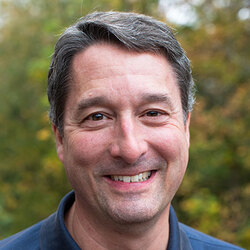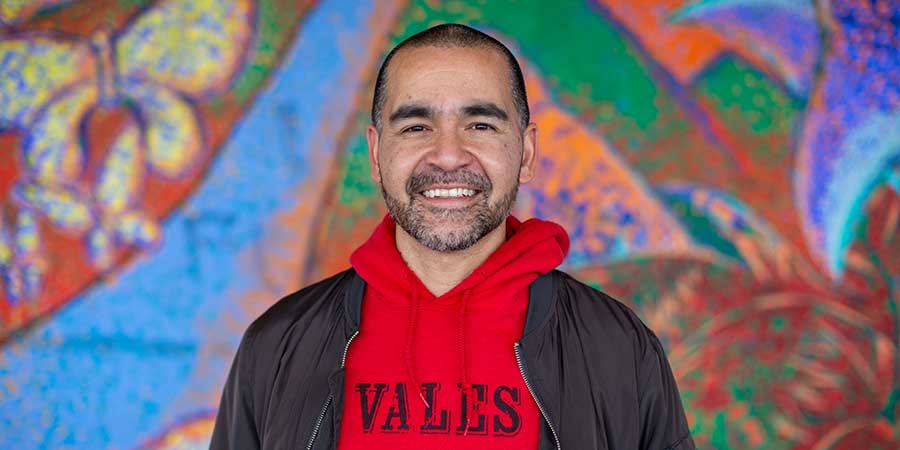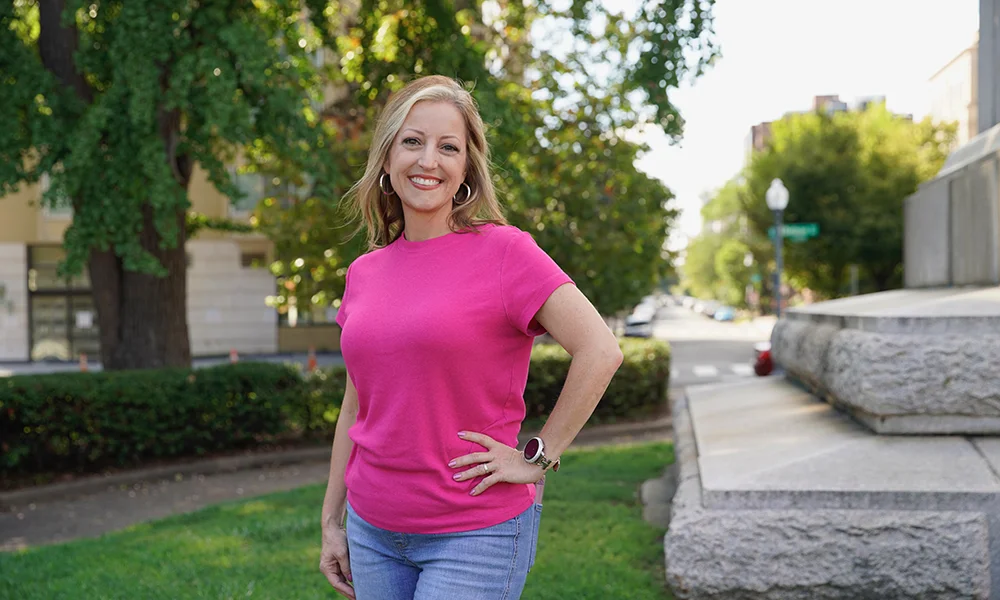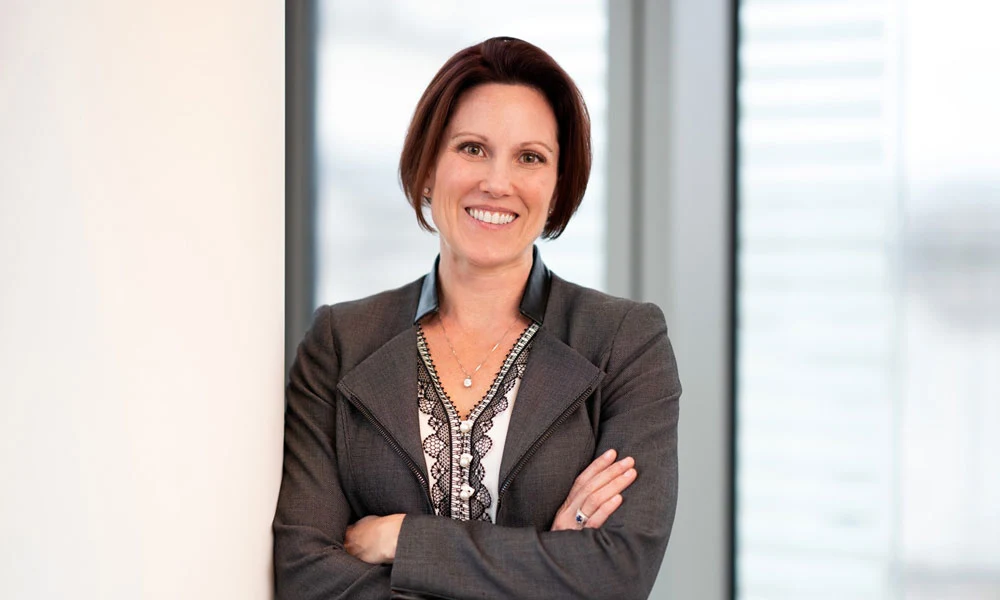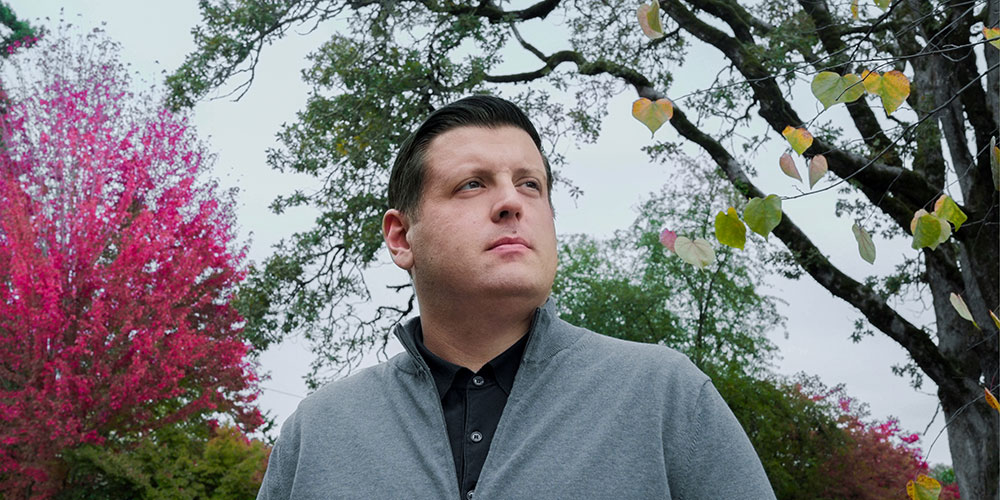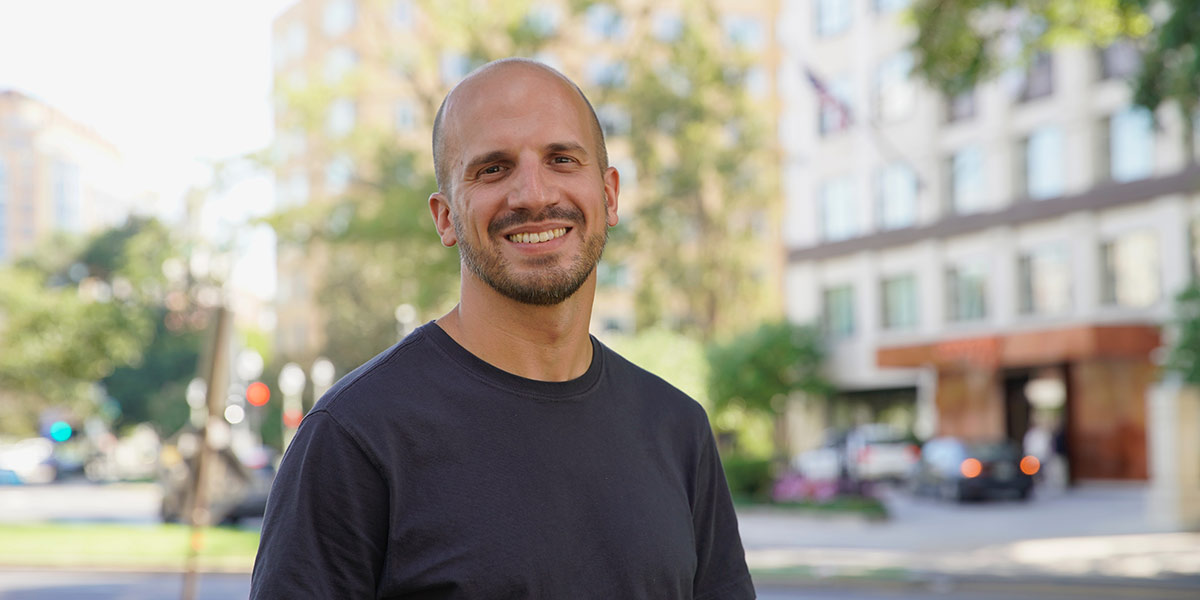
‘What Does it Mean to be Faithful?’
by Sean Patterson
It’s the question Portland Seminary alumnus Dominic Abaria says is the fundamental one to ask as we pursue our life’s calling and purpose
If there’s one observation Dominic Abaria has discovered over his years in ministry, it’s the fact the world doesn’t afford us space to invest in our spiritual journeys.
With so much vying for our attention – be it social media, entertainment, work and family responsibilities, or hobbies – it’s a challenge to take a breath, consider what is true about ourselves and about God, and to discover just what it is God would have us do.
“The question shouldn’t be, ‘How do I become successful in this world,’” says Abaria, who recently launched Fermata Ministries, dedicated to offering spiritual direction, pastoral counseling, and ministry coaching to those feeling burned out or disconnected from God. “Rather, it should be, ‘What does it mean to be faithful?’ If I am faithful, that’s when I am successful in the eyes of God.”
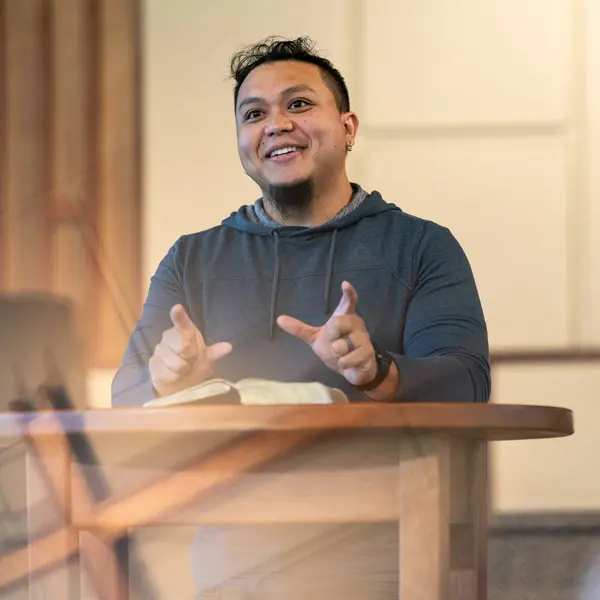
It’s with that mindset that Abaria, a 2021 graduate of Portland Seminary’s Doctor of Ministry program, approaches ministry. In a world that defines success by results and numbers, he has decided to counterculturally stick to the belief that remaining faithful to the work God has called him is paramount.
“So it’s not about church growth, it’s not about numbers, it’s not about census, it’s not about pleasing the board, per se,” says Abaria, who also serves as a pastor and elder at Roots Community Church in Portland. “It’s about this call that Jesus has on my life. Am I able to say, ‘Yes, I have been faithful in what you've invited me into?’ That’s the gold standard of spiritual life now for me.
“The world is always rushed, moving forward so task-oriented that it’s easy to get lost in the doing and forget the being part of who we are, which I believe is the core aspect of our spiritual formation journey.”
The Unlikely Pastor
As part of living out that journey, Abaria believes, one has to first determine where best to apply that passion. Or, as author and business theorist Edwards Deming put it, “It’s not actually enough to do your best. You have to know what to do and then do your best.”
Early in his life, Abaria certainly had zeal and focus, but it was misdirected. A fast talker, he was told by his mother, in jest, that he’d make a good lawyer.
“And I said, ‘Oh, I could get paid to argue with people and prove people wrong? Sign me up. That sounds beautiful,” he recalls. “So I decided to move forward on that path. I was going to use my words to make lots of money, and ultimately, if I’m a prosecutor, I can condemn people. I can seek after truth and justice, and this would be my great calling in life.”
But a transformative experience in a youth group rocked his world. He heard testimonials of those who lived for Christ – who gave everything as missionaries to the cause. The stories stirred in him a desire to do the same, making his pursuit of a career focused on gratifying himself seem shallow.
“I discovered there was so much more to life than the material goods, the success, the accolades,” he says. “And so when I applied to colleges, half of my applications were political science and half of them were theology. I just didn’t understand how those worlds would meet.”
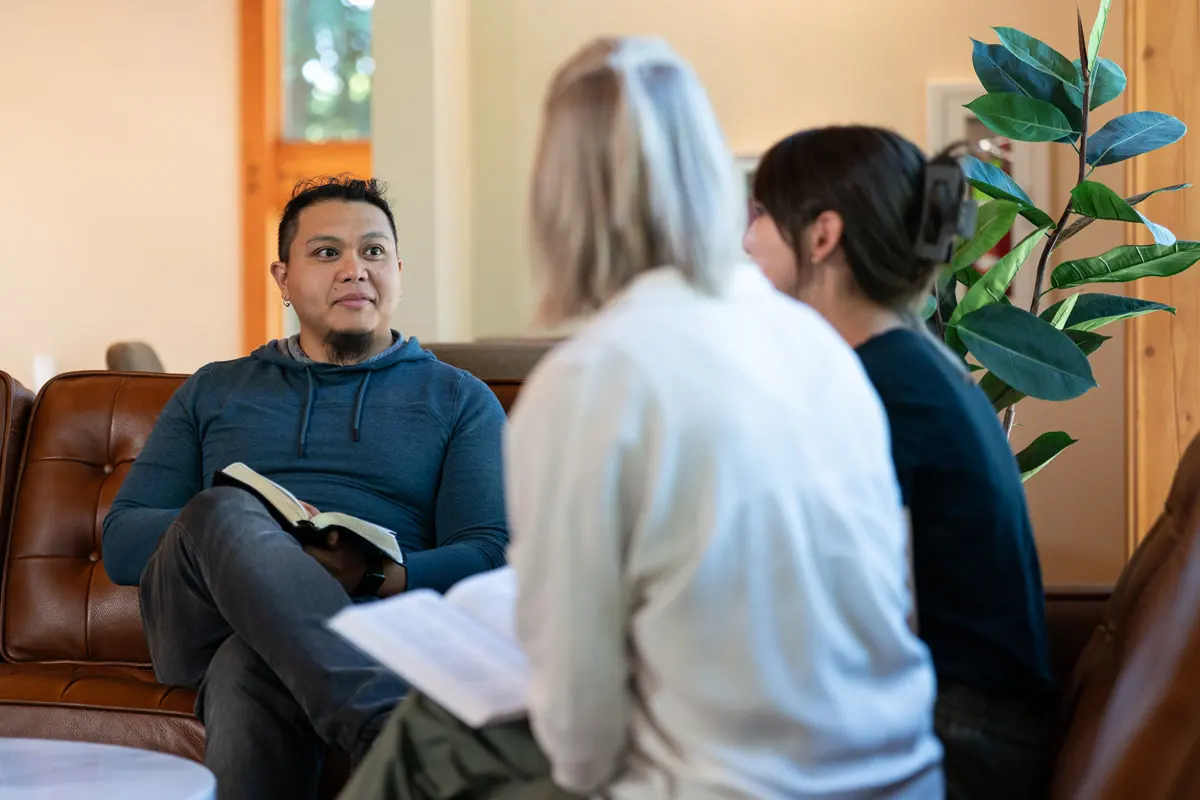
The Path to Ministry
Abaria ended up studying at a Lutheran university, Concordia in Portland, and began reading the Bible in earnest for the first time in his life. Being raised Catholic in a strict pre-Vatican II household, he was always told the Bible was “too holy” or “too complex” to read on his own. Now, free from such thinking, he began to dive into the Scriptures.
In doing so, he discovered a God he had always heard about but had never truly known.
“I thought, ‘This is a God who’s inviting me into relationship with him,’” he reflects. “And how could I say no? It was my freshman year of college, and from that point forward, everything changed where I saw this redemption of who I was.”
To his amazement, though, God didn’t scrap Abaria’s gift for speaking. He simply redeemed and repurposed it, so instead of using words to condemn people and send them to prison, he was using his words to spread the love and grace of God and to fill others with encouragement and hope.
A ‘Spiritual Foundation’
Even as he launched his career in ministry, reveling in this newfound calling, Abaria soon discovered there was still something missing.
“I realized in the midst of all of this preaching that there has to be some sort of internal connection between me and God that sustains me for a lifetime of preaching and teaching,” he says. “And what I found was that leadership can be very lonely. As you climb further up the ladders, especially ecclesiological or organizational ladders, you get very lonely at the top and it becomes a place where there are dangers sharing real struggles that are going on in your life.
“And I was too honest to say, ‘Oh, there are no struggles.’ I knew there were things that I could continue to grow in, doubts that I was having, questions about the inauthenticity of my own faith.”
In short, Abaria came to the realization that his journey was far from over, and that pursuing God on an intellectual level could only get him so far. He needed to go deeper.
“I realized there was a need for a spiritual foundation, and that’s actually how I found Portland Seminary,” he says. “The fact that they were able to integrate spiritual formation into every track that they had was a beautiful thing. But specifically, this call to leadership and spiritual formation. That was the program I enrolled in. It opened up this entire world where I realized every act of ministry, every act of evangelism, every act of service must be rooted in an abiding relationship with Jesus.”
Suddenly, Jesus’ words from John 15 rang true: “You can do nothing unless you abide in me.”
“I never understood the truth of that until I engaged in the spiritual formation process at Portland Seminary,” he says. “The abiding in Jesus is the one thing that is necessary.”
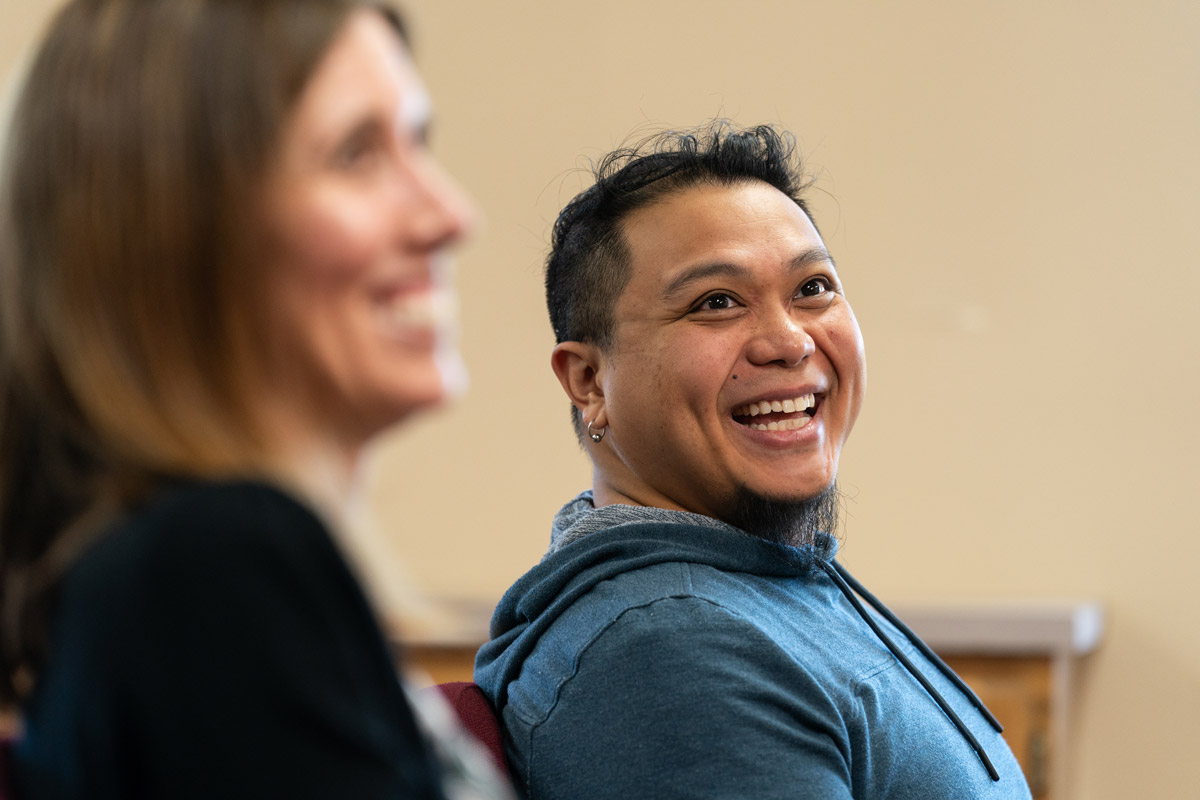
Finding Freedom in Faithfulness
In his roles as a pastor and mentor, Abaria stresses to those around him the importance of realizing it’s faithfulness – not necessarily the nature of the work itself – that is key to finding one’s God-given purpose.
In other words, “ministry” isn’t restricted to volunteering at church or feeding the homeless.
“Faithfulness can manifest itself in a million different places,” he says. “And I think that sense of clarity has given people freedom to serve well in different areas in life. And it’s not pigeonholed into one idea of, ‘What does it mean to be successful in ministry?’ We can be faithful in any walk of life if we realize that there’s a journey that Jesus wants to take with us there.
“There isn’t a sense of obligation or heavy handedness with the work that I now partake in. There is more a sense of freedom and discovery and exploration, and a sense of deep trust that God is actually with me in this process.”
For Abaria, he finds that freedom in his role of helping people navigate the most important questions in their life – “Who am I? What was I created for? What is my purpose on this earth?”
“When we introduce Jesus to people as the way, everything makes sense,” he says. “We were created to glorify God. We were created as people who seek the sense of redemption and wholeness that this world doesn’t offer. When I think about my role as a leader in this community, it is nothing more than bringing people to Jesus who is the way.”
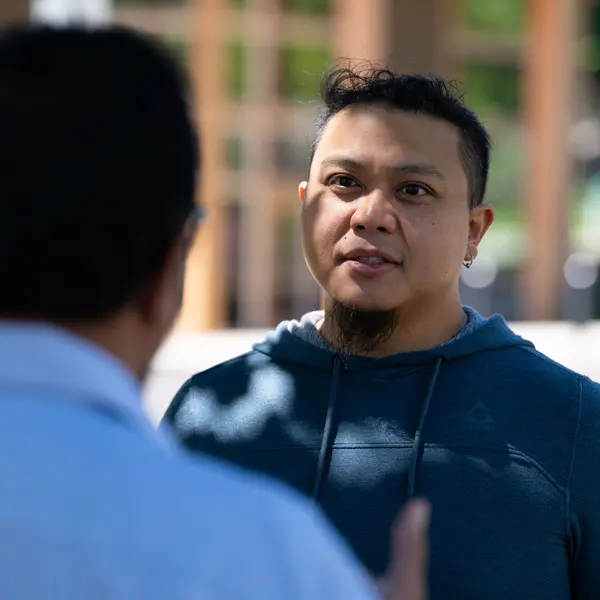
Giving Back
Abaria also sees the importance of giving back, which is why he also works as a project faculty member at Portland Seminary, advising doctoral students on their three-year Project Portfolio projects. After all, the seminary was foundational in his quest to find inner purpose; he’s simply making himself available to speak into the lives of future theologians.
“Portland Seminary has given me skills and tools and a level of discernment to understand everything that we see in our world is ultimately rooted in a spiritual truth inside of who we are,” he says. “And if we’re blind to that process of spiritual transformation it’s easy for the world to shape us in whatever image the world wants to shape us into, whether it's monetizing our focus or monetizing our attention, or setting goals for our lives.
“My experience at the seminary reminded me there is a deeper life that we’re called into where you can cut out the noise and you gain clarity about what your spiritual path looks like – what your vocational call is. Seminary has given me the ability to walk that spiritual journey with confidence and with community, and it’s been a beautiful process.”
